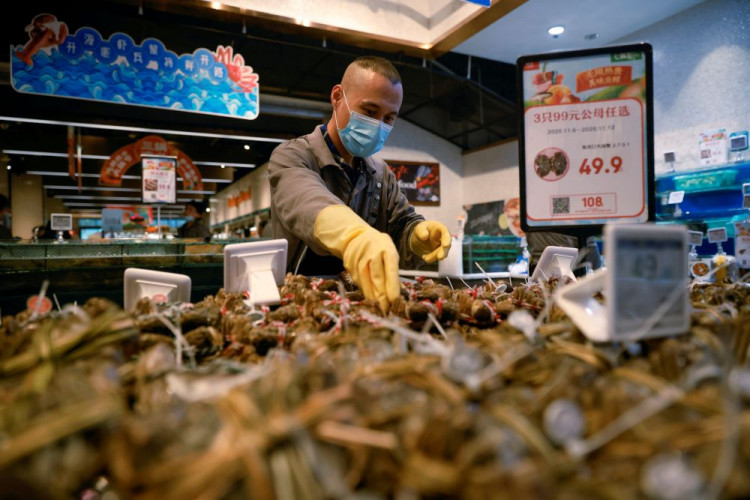China's consumer price index (CPI) rose by 0.2% in November from the previous year, marking its slowest pace in five months and undershooting analysts' expectations, according to data released Monday by the National Bureau of Statistics (NBS). The figure, down from a 0.3% increase in October, fell short of the 0.5% rise forecast by economists polled by Reuters, highlighting continued challenges in reviving domestic demand.
Core inflation, which strips out volatile food and energy prices, showed a marginal year-on-year increase of 0.3% in November, slightly above October's 0.2%. On a monthly basis, CPI declined 0.6%, following a 0.3% drop the previous month, underscoring the sluggishness in consumer spending.
Producer price deflation persisted as well. The producer price index (PPI) fell by 2.5% year-on-year in November, marking the 26th consecutive month of contraction. While the decline narrowed slightly from October's 2.9% drop, it remained above the 2.8% fall predicted by analysts.
Food prices contributed mixed signals to the inflation picture. While pork prices surged 13.7% year-on-year and fresh vegetables rose 10%, these gains were insufficient to significantly offset broader price stagnation. The NBS highlighted that slower food price growth largely accounted for the overall decline in consumer price growth.
Despite a series of government measures aimed at stimulating economic activity-including interest rate cuts, efforts to bolster the real estate market, and initiatives to encourage bank lending-China's inflation data underscores the depth of challenges facing policymakers. Beijing's actions have yet to fully counteract weak demand in both consumer and industrial sectors.
Erica Tay, a macroeconomic analyst, noted the impact of excess inventory in manufacturing sectors, which continues to weigh on producer prices. Persistent deflation in PPI highlights ongoing struggles in balancing supply with demand across industrial goods.
Goldman Sachs, in a note dated December 6, stated its expectation that near-zero consumer price inflation will persist in China through 2025. Similarly, analysts at Standard Chartered Bank linked the deflationary trend to broader economic uncertainties, including the lingering effects of the U.S.-China trade tensions.
China's leaders are preparing to address these issues at the upcoming Central Economic Work Conference, set to begin this week. The annual meeting will lay out economic priorities and stimulus measures for 2025. Analysts anticipate a focus on stabilizing the property market, promoting domestic consumption, and ensuring job growth.





